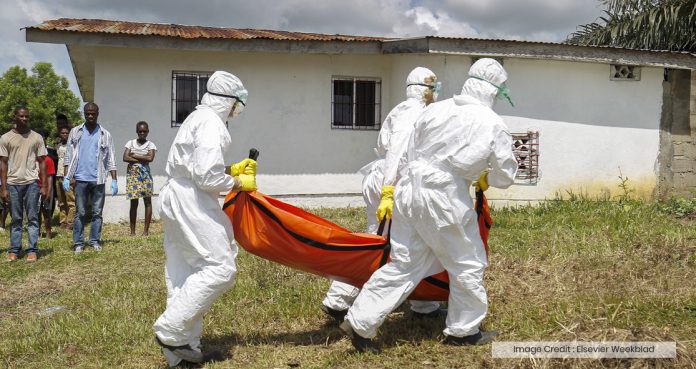The director-general of the World Health Organization (WHO) has declared the ongoing Ebola outbreak in the Democratic Republic of Congo (DRC) an international health emergency.
On Wednesday, WHO Director-General Dr. Tedros Adhanom Ghebreyesus described DRC Ebola outbreak as “a concerning geographic expansion.” However, he said the outbreak does not pose a global threat.
The WHO recommended that no borders will be closed because of the declaration. The trading and traveling to Congo also will not be restricted. Dr. Tedros said such restrictions would cause a negative impact on the economy and may also hamper the efforts to stop the outbreak.
According to the agency, the Ebola outbreak in the DRC has killed over 1,650 people, and approximately 12 new cases are reported on a daily basis.
Dr. Tedros said the DRC needs funding from the international community; otherwise, “we will be paying for this outbreak for a long time to come.”
The WHO chief met an emergency panel of experts to discuss the possibility of the declaration not long after the first case was confirmed recently in Goma, which is home to about a million people, raising concerns about spreading the virus.
The Wednesday’s meeting marked the fourth time since the outbreak was declared on August 1, 2018, that the officials have met to declare the Ebola epidemic a “public health emergency of international concern.”
Last month, the officials met after the first confirmed Ebola case was reported in neighboring Uganda; however, they declined to declare an emergency. At that time, the officials said “the cluster of cases in Uganda is not unexpected” and said that it did not meet the necessary criteria.
The three important criteria for a declaration of an international health emergency are that:
- it is an extraordinary event
- it constitutes a public health risk to other States through the international spread of disease
- it potentially requires a coordinated international response.
Last time when the officials met, they said that the ongoing Ebola outbreak met the first two criteria.
Two of the biggest challenges with containing this outbreak are community mistrust and militia violence.
In the conference, Dr. Tedros said there have been violent attacks in the region for years. He said, “It’s not new, it’s a war zone,” adding that the U.N. troops and Congolese army are working together to prevent more attacks. Dr. Tedros said, “Together with the government, we can and will end this outbreak. We have better public health tools than ever to respond to Ebola, including an effective vaccine. But we need to see an end to the attacks and other disruptions to the response.”






















